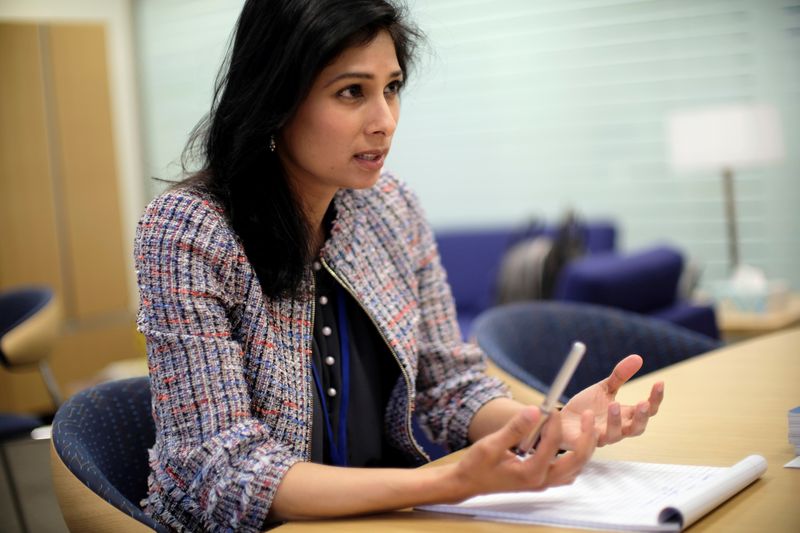By Tom Arnold and Elizabeth Howcroft
LONDON (Reuters) - The global economy is recovering from the COVID-19 pandemic at an uneven pace due to unequal access to vaccinations, with the Delta variant threatening those countries lacking essential medical supplies, the IMF's chief economist warned on Wednesday.
Well over a year on from the start of the pandemic, many countries are still battling the virus, particularly the increasingly dominant and highly infectious Delta variant. Indonesia, Malaysia, Thailand and Australia are all battling pandemic outbreaks and tightening restrictions.
"Right now what we are seeing is highly unequal access to vaccinations, including therapeutics and diagnostics. Therefore, what we're seeing is a diverging recovery," International Monetary Fund chief economist Gita Gopinath said during a webinar at the annual meeting of the European Bank for Reconstruction and Development.
"The number one issue is how do we get to a point where we have good coverage of populations in terms of vaccination rates everywhere in the world."
Referencing surges in sub-Saharan Africa and Latin America, Gopinath said there were countries that will not have the required testing, personal protective equipment or oxygen to "survive this surge."
After the steepest annual downturn of the postwar era, the IMF expects global growth to rebound robustly this year. In April it raised its growth estimates for the global economy to 6% this year, while forecasting smaller improvements in emerging economies than their developed peers.
The crisis had been "exceptionally regressive" on issues ranging from food security to poverty and debt, said World Bank chief economist Carmen Reinhart.
Meanwhile, as an uneven global recovery takes shape many countries are being tested by sharp increases in inflationary pressures, Reinhart said.
Investors have been on alert for signs of inflation, in the United States in particular, with concerns elevated about the pace of removal of policy support from the Federal Reserve and other major central banks.
The United States was seeing transitory pressures around inflation linked to supply and demand mismatches showing up in delivery delays, with risks on the upside, Gopinath said.

"A lot of these sources (of inflation) are transitive in nature – there is reason to believe that by next year these numbers will come back down to more normal levels," she said. "Right now, my view is that we are in a state where we see transitory movements in inflation and that they will come down."
“There's of course always risks on the upside"